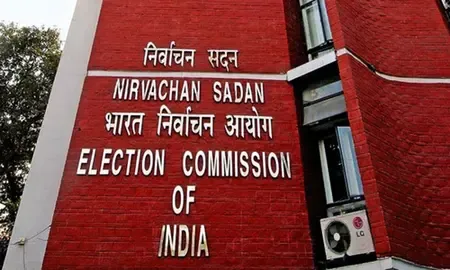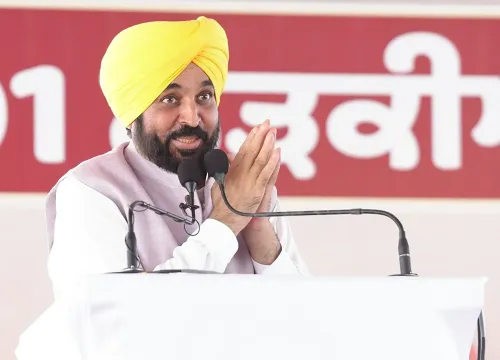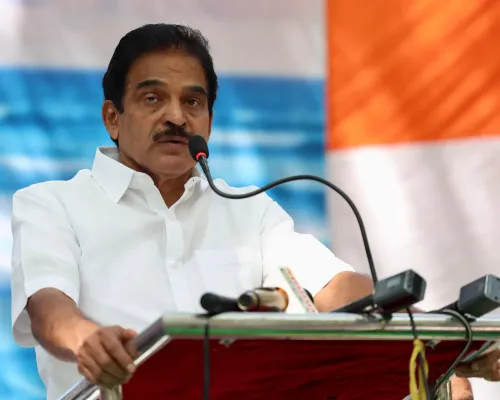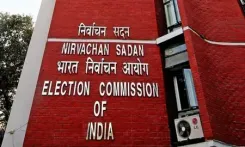JP Nadda Initiates 100-Day Campaign to Eliminate TB in 347 Districts
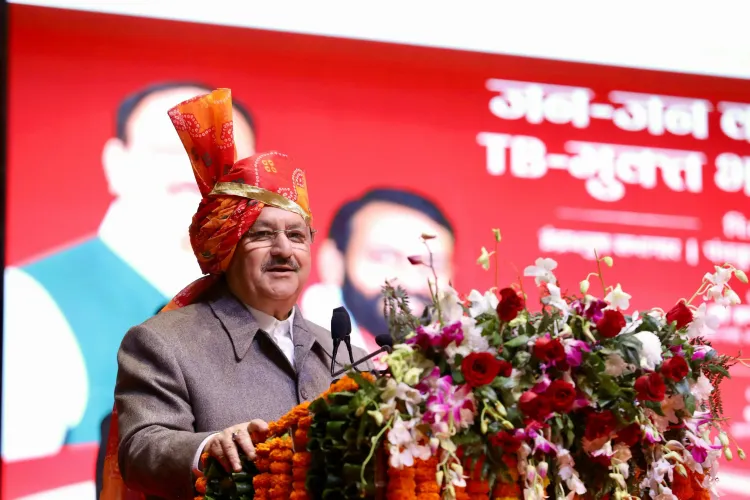
Panchkula, Dec 7 (NationPress) Union Minister for Health and Family Welfare Jagat Prakash Nadda officially kicked off the 100-day intensified initiative led by the National TB Elimination Programme (NTEP) in Haryana, covering 347 districts.
The primary goal of this campaign is to locate and treat missing TB patients through enhanced detection efforts, particularly targeting high-risk populations, while aiming to significantly decrease TB-related deaths.
Advanced screening and diagnostic technologies will be utilized to minimize delays in both diagnosis and the commencement of treatment.
The launch event saw the presence of Haryana Chief Minister Nayab Singh Saini, state Health Minister Arti Singh Rao, along with officials from both the Union and state health ministries and the National Tuberculosis Division.
During his address, Union Health Minister Nadda expressed that this campaign would invigorate the TB-Mukt Bharat Abhiyan. He emphasized that the campaign will feature expedited detection, treatment, and supportive strategies across the 347 targeted districts.
Nadda highlighted the historical context prior to 1960 when a TB diagnosis was akin to a death sentence. He noted, “Individuals diagnosed with TB were often isolated; meals were served separately, and many were sent to TB sanatoriums. Today, our commitment is towards achieving a TB Mukt Bharat.”
The National TB Programme launched in 1962 marked the beginning of medicinal treatment, followed by the introduction of Directly Observed Treatment (DOT) in 1997, and later the Revised National TB Programme.
In a pivotal shift, the Prime Minister in 2018 called for an end to TB, a bold declaration not only for India but globally.
Nadda reaffirmed the Health Ministry's dedication to this cause, asserting that the objective of eradicating TB by 2030 aligns with the Sustainable Development Goals.
The campaign's execution will be customized to tackle the unique challenges faced in each region. The 347 districts across 33 states and Union Territories were selected based on critical indicators including mortality rates, presumptive TB examination rates, and incidence rates in comparison to the national average.
Key objectives of the campaign include enhancing disease detection through intensified case-finding initiatives that employ advanced screening and diagnostic technologies to expedite diagnosis and treatment initiation.
Mobile ultraportable, AI-enabled X-ray units and molecular tests will be deployed to bring sophisticated diagnostics closer to populations, especially in remote areas.
In addition to screening vulnerable individuals for TB symptoms, the NTEP will also screen all high-risk groups for TB, irrespective of symptom presence.
Simultaneously, to lower TB mortality rates, the programme will broaden access to innovative initiatives such as Differentiated TB Care, which offers specialized care for high-risk patients, along with enhanced nutritional support through the Ni-kshay Poshan Yojana.

